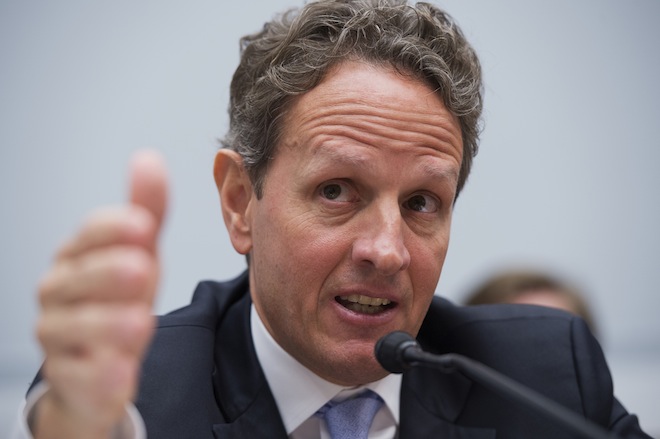GOP advocates of refusing to raise the debt limit absent spending concessions from Democrats are characterizing a debt limit breach as a small disruption — a minor economic disturbance, worth the cost if it means cutting government social programs going forward.
We’ve explained why their claims are false. But the reality is even more dire than the best-case scenario we painted.
A new report by the Bipartisan Policy Center explains some of the difficulties the Treasury Department would face if it runs out of borrowing authority, and suddenly lacks the funds it needs to meet all of the government obligations. The obstacles would be daunting — huge technical challenges stemming from computer systems designed to make payments automatically, legal questions about the administration’s authority to prioritize payments to creditors, and so on.
But the idea underlying Republican claims — that Treasury could meet interest obligations before paying down other expenses — also appears to be false.
According to BPC, the government is expected to exhaust its borrowing authority no earlier than Feb. 15. In all likelihood, it won’t reach the breaking point until a few days after the 15th. But on the 15th, and some future dates, the Treasury will owe more in debt service than it collects in revenues
On days like that, avoiding a default will be even more difficult, if not impossible.
Again, the Treasury will likely have running room to meet all of its obligations beyond Feb. 15. But on Feb. 15, it is expected to collect $9 billion in revenue, but owe $30 billion in interest on the debt. That’s a recipe for default — unless the administration takes some legally dubious steps.
“The other possibility that should be considered is that Treasury could, assuming legal authority, start prioritizing before the 15th, meaning that if they thought the 15th was the date and they saw they wouldn’t have enough cash on hand, because revenues would not be sufficient, they could start prioritizing on the 13th or the 14th,” says Shai Akabas, a senior policy analyst at BPC, and an author of the debt limit report.
In other words, the government could find itself in a position in which it must choose between missing payment obligations before borrowing authority expires or defaulting on its debts the day the authority lapses.
That’s an unlikely scenario at this point. But it further illustrates just how damaging a debt limit breach would be to the economy and U.S. creditworthiness.






